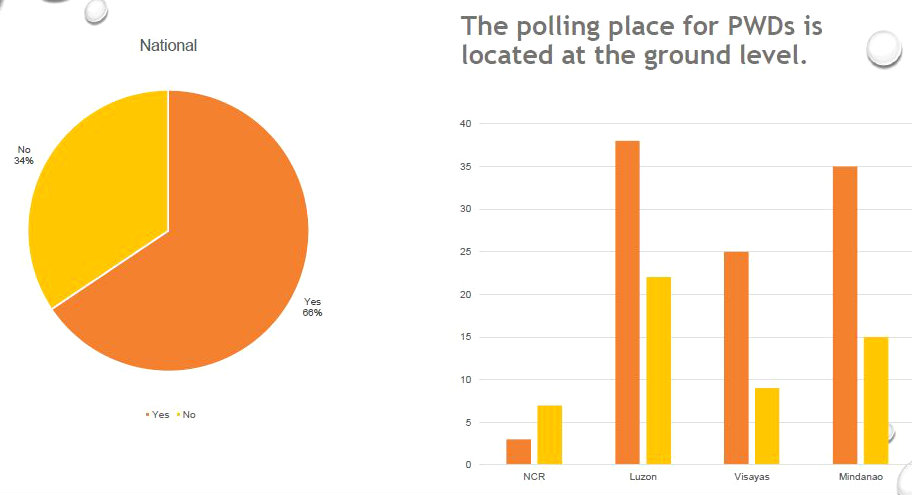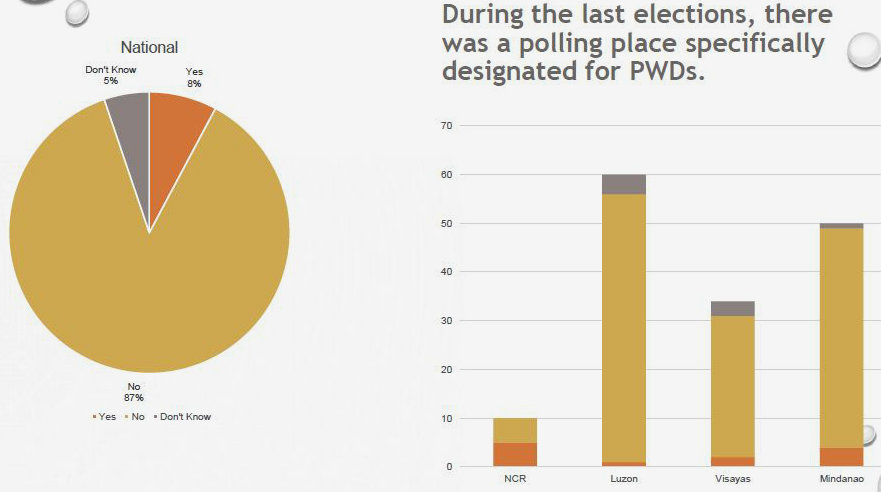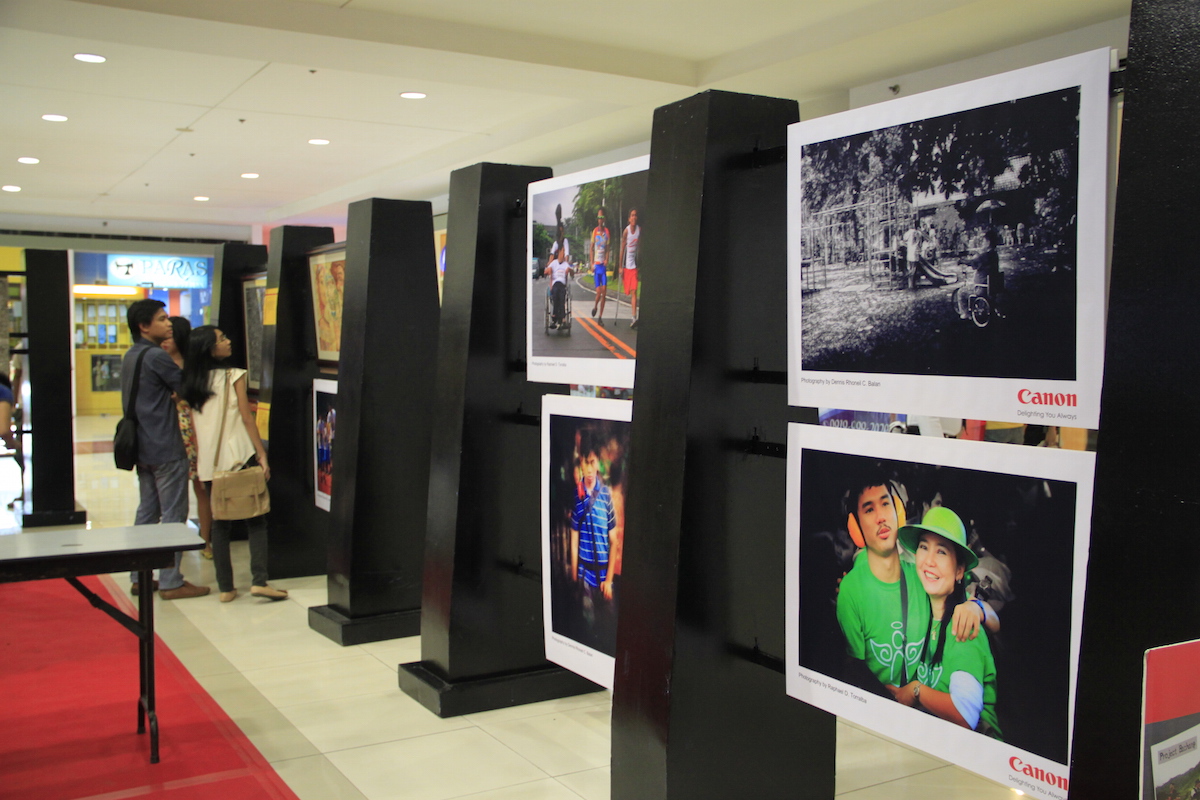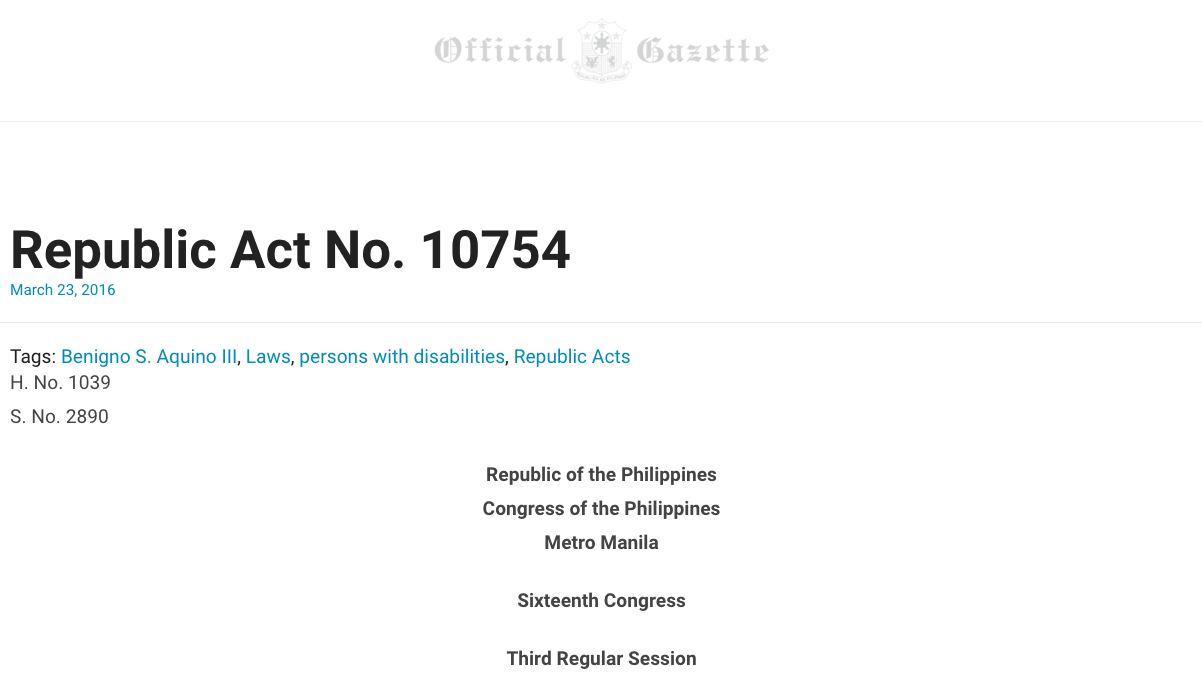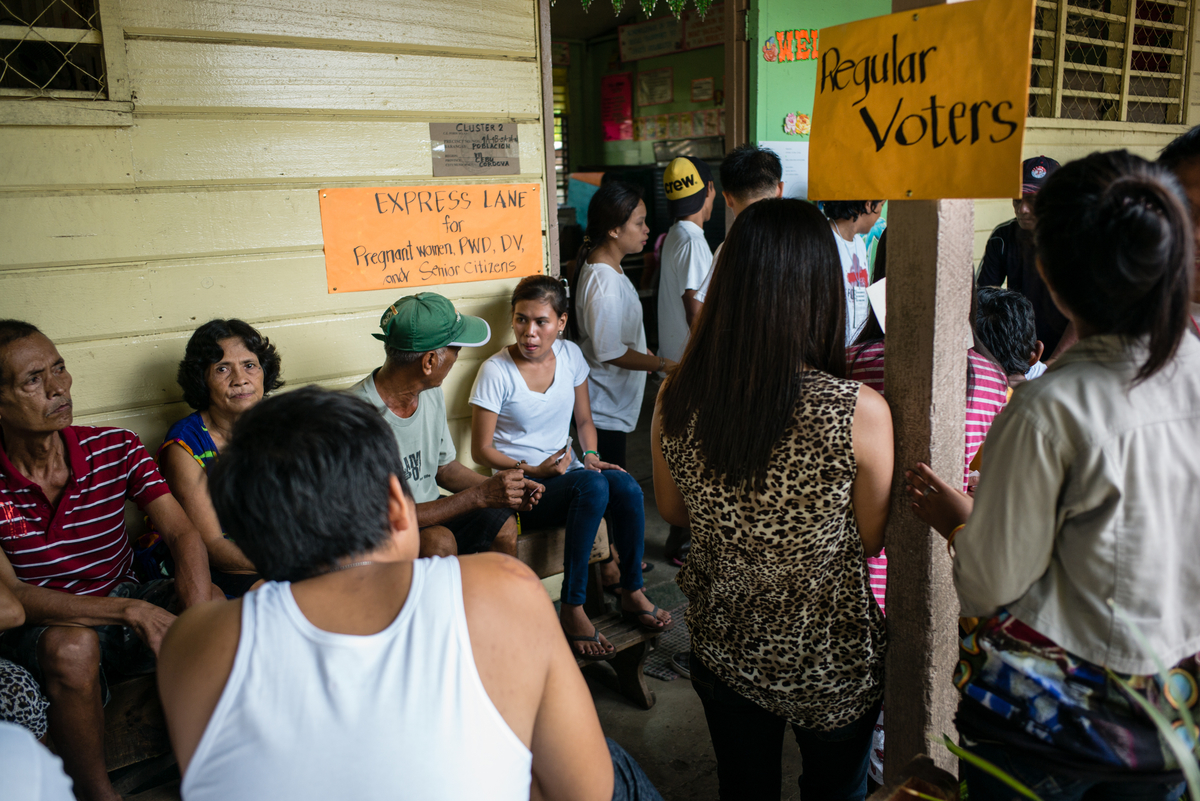
By VINCE NONATO
IT’S not so much how the classrooms are built but how persons with disabilities (PWDs) would reach the school where they’re supposed to vote during elections.
This was one of the findings of human rights lawyers group Upholding Life and Nature (Ulan) that audited the accessibility of schools in 17 towns, one for every region, including the Autonomous Region in Muslim Mindanao.
Barangays with the highest number of PWDs based on a criteria of 23 standards set the National Council on Disability Affairs (NCDA), including those in vote-rich Pangasinan, Cebu City, and Davao City, were covered in the audit, the highlights of which were presented at a forum Wednesday.
In Bohol, a pilot area of the accessibility audit, nearly all the voting centers were found on single-story school buildings. However, the problem with the island province is its uneven topography, making some areas hard to reach.
Ulan executive director Ronaldo Gutierrez said having polling places on ground floors does not mean they are automatically accessible, said
The report showed that while two of every three surveyed schools had polling places on the ground floors, only half of these had paved pathways.
Only one in fourhad ramps for wheelchair-users, and these were not always sturdy. There were cases where makeshift ramps were made of plywood.
While nine out of 10 voting centers were found to be accessible to commuters, Gutierrez said Ulan was not able to push through with the audit of four schools in Catarman, a first-class town and the capital of Northern Samar, because they were “practically inaccessible.”
School grounds in the provinces are much larger and may make it harder for PWDs to get to polling places, he said.
NCDA Executive Director Carment Zubiaga said while improving the accessibility of polling places would be “a remarkable move” to promote PWD inclusion, accessibility is not just about the physical environment.
Ulan found that PWDs with hearing and speech impairments did not get enough assistance: A whopping 77 percent of polling centers had no have sign language interpreters on hand during the elections. It recommended that election inspectors be trained on basic sign language skills.
Meanwhile, six in 10 schools did not have sufficient signage on assisting PWDs.
But there are bright spots.
More than half (56 percent) of the schools had places suitable as waiting areas for PWDs.
Quezon City, in particular, is doing well with its wheelchair-accessible hallways. About 8 percent of schools in the city had “polling places specifically designated for PWDs.” Its election inspectors also made sure the PWDs were properly guided.
Mindanao polling centersalso fared better in almost every criteria in the audit. Schools there had tables and desks used for voting that are sufficient in height and legroom, polling centers that were spacious, doorways to polling places that were flat and not elevated, and sufficient signageleading to the polling place.
“Mindanao is outperforming Luzon…where we have a lot of problems,” Gutierrez said.
Elections Commissioner Grace Padaca said it might be because school buildings in Mindanao were built much more recently than those in Luzon and the Visayas.
The new schools built by the education department are required to comply with the Accessibility Law, she said.
Aside from schools, Comelec is eyeing satellite registrations and the use of malls as polling places for PWDs for future elections.
But there are challenges to hurdle. Padaca said a man with visual impairment complained that he had to fall in line to vote at an SM mall polling place during the October barangay elections. Had he voted in his precinct at school, the voter said, he would have been given priority.
Padaca also noted that unlike in normal polling centers, assistors would not be given the chance to vote alongside their PWD relatives in the mall.
“Give them the choice. That’s why there’s a question in the form asking if you’d like to vote in an APP (accessible polling place),” she said.
Zubiaga said she is happy that PWDs are getting the attention they need. She said the government’s response to the needs of PWDs has changed over the years.
Padaca, however,warned of a possible downside to the increased attention to PWDs.
“We talk so much about giving accessibility, but are we just making it easy (for cheating politicians) to use their numbers for their own ends?” she said.

